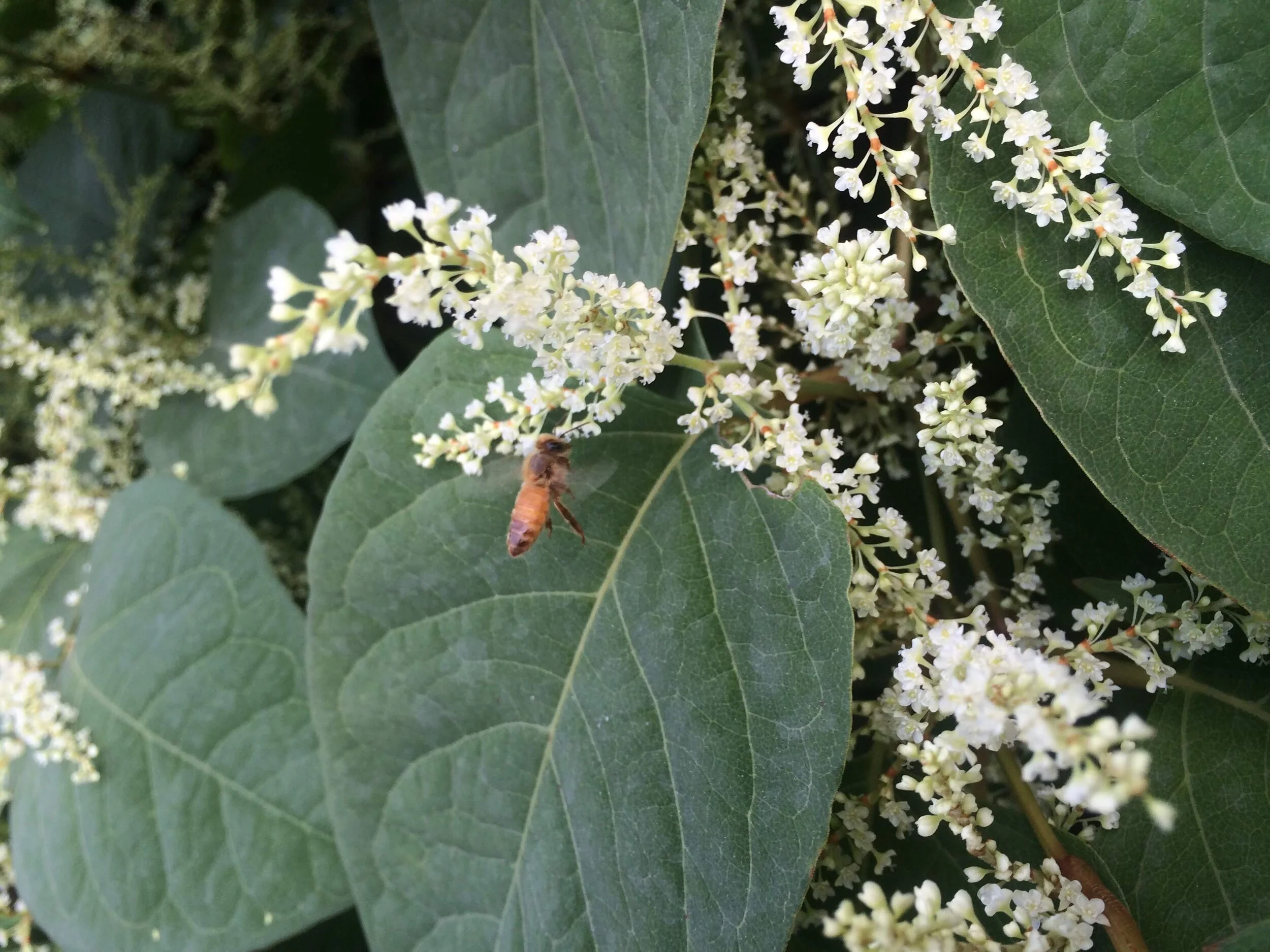












Our Honey
Our honey bees produce local New Jersey wildflower honey from local flowers, and the character of that honey varies from year to year depending on which flowers produce an abundance of nectar. Most years linden is high on the list of components, making a pale, mild honey. But we also have nectar flows from black locust, tulip poplar, clover, autumn olive, thistle, knotweed, smartweed, goldenrod, japanese bamboo, and many others. Because nectar and pollen-producing plants are similar throughout northern New Jersey, our honey is generally considered local for all of NJ north of the Raritan River.
Varietal Honey
We are fortunate to have two apiaries situated near groves of black locust trees. These bees produce a limited crop of premium black locust honey each year. This honey is extremely pale, with just a hint of gold color. Its flavor is very delicate: waxy and floral. Locust honey is available only in one pound jars, and may not be available all year long. Once it's gone, it's gone until the next annual harvest! We also are able to obtain blueberry blossom honey, made by bees pollinating New Jersey blueberries in the southern part of the state. Blueberry blossom honey tastes like caramel - yum! And, in some years, we are lucky enough to harvest honey from Japanese bamboo shrubs - an invasive plant that the bees put to good use, making a delicious rich, dark honey.
Raw, Minimally Processed Local Honey
All Gooserock Farm local honey is raw, i.e., it has not been heated in processing. It is filtered on extraction just enough to remove bits of wax but still retains trace particles of pollen and propolis. Raw honey contains all the trace vitamins and minerals as well as the flavor that high heat destroys. Large commercial producers often heat and microfilter their honey to delay crystallization and prolong shelf life as a liquid. Our honey will crystallize (become solid) more quickly than commercial honey. This does not affect its quality, in fact, we've heard it said that honey doesn't reach its fullest flavor until it has crystallized. If, however, you want to return your honey to a liquid state, heat it very gently in a pot of warm water until the crystals melt. When our honey crystallizes on the shelves, we restore it to a liquid state by very gently warming it in special insulated chambers to controlled temperatures of 95 to 100 degrees - the same temperatures the honey experiences while still in the hives with the bees.
We are proud to announce that our own wildflower honey won the blue ribbon at the 2008 NJ Beekeepers Association Honey Show in the Light Amber class!!!! We always thought it was the most delicious honey we'd ever tasted, now we can honestly brag that we've got the best honey in the state! Not only that, we also took blue ribbons for both our comb honey and our chunk honey in 2018.
Artisan Honey Spreads
Variety is definitely the spice of life, and we delight in making a line of delicious artisan honey spreads from our local, raw honey. These include Cinnamon Honey Creme (reminiscent of the old powdered cinnamon and sugar some of us used to sprinkle on our toast as children), and several luscious flavors made by adding pure fruit which has been freeze dried and powdered to our local honey. The result: Cinnamon, pomegranate, and blackberry honey spreads! Even people who claim to not like honey like these delicious fruit and creamed honey mixtures. And, of course we offer creamed (“set”) honey, too.
Creamed honey, or, as it's sometimes called, set honey, is pure honey with nothing added, in which the crystallization process is controlled. We add 'seed crystals' of very finely ground crystallized honey to our liquid honey and set it in a cool place to hasten crystallization. The remaining honey will form crystals the same size as the seed honey, resulting in a very smooth, creamy-textured semi-solid honey that won't drip. Creamed honey is perfect for spreading, and a great choice for kids as it tends to be less drippy than liquid honey.
Honey should not be fed to infants under 12 months of age.
